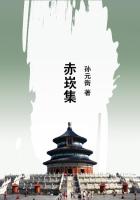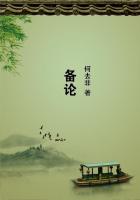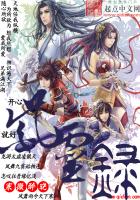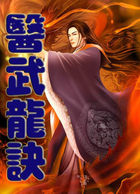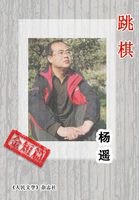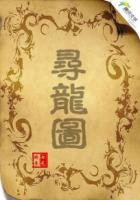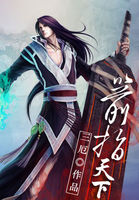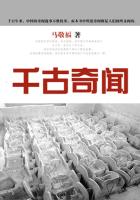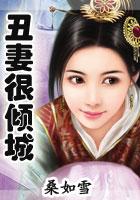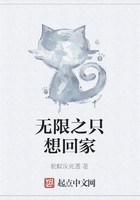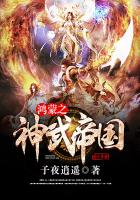[Richard Mansfield, one of the great actors of his time, was born in Heligoland, then a British Possession, in 1857. He prepared himself for the East Indian civil service, then studied art, and opened a studio in Boston. He was soon attracted to the stage, and began playing minor parts in comic opera, displaying marked ability from the first. His versatility took him all the way from the role of Koko in the "Mikado," to Beau Brummel and Richard III. His success soon enabled him to assemble a company of his own; as its manager he produced with memorable effect "Cyrano de Bergerac," "Henry V.," and "Julius Caesar." He died in 1907, a few weeks after a striking creation of "Peer Gynt." A biography of Mr. Mansfield by Mr. Paul Wilstach is published by C. Scribner's Sons, New York.
Mr. Mansfield's article on "Man and the Actor," which appeared in the _Atlantic Monthly_, May, 1906, copyright by Houghton, Mifflin & Co., Boston, is here given almost in full by the kind permission of the publishers and of Mrs. Richard Mansfield. It is in effect an autobiographical revelation of the artist and the man.--ED.]
MAN AND THE ACTOR
I hold the world but as the world, Gratiano, A stage where every man must play a part.
Shakespeare does not say "may" play a part, or "can" play a part, but he says _must_ play a part; and he has expressed the conviction of every intelligent student of humanity then and thereafter, now and hereafter. The stage cannot be held in contempt by mankind; because all mankind is acting, and every human being is playing a part. The better a man plays his part, the better he succeeds. The more a man knows of the art of acting, the greater the man; for, from the king on his throne to the beggar in the street, every man is acting. There is no greater comedian or tragedian in the world than a great king. The knowledge of the art of acting is indispensable to a knowledge of mankind, and when you are able to pierce the disguise in which every man arrays himself, or to read the character which every man assumes, you achieve an intimate knowledge of your fellow men, and you are able to cope with the man, either as he is, or as he pretends to be. It was necessary for Shakespeare to be an actor in order to know men.
Without his knowledge of the stage, Shakespeare could never have been the reader of men that he was. And yet we are asked, "Is the stage worth while?"NAPOLEON AS ACTOR
Napoleon and Alexander were both great actors--Napoleon perhaps the greatest actor the world has ever seen. Whether on the bridge of Lodi, or in his camp at Tilsit; whether addressing his soldiers in the plains of Egypt; whether throwing open his old gray coat and saying, "Children, will you fire on your general?" whether bidding farewell to them at Fontainebleau; whether standing on the deck of the _Bellerophon_, or on the rocks of St. Helena--he was always an actor.
Napoleon had studied the art of acting, and he knew its value. If the power of the eye, the power of the voice, the power of that all-commanding gesture of the hand, failed him when he faced the regiment of veterans on his return from Elba, he was lost. But he had proved and compelled his audience too often for his art to fail him then. The leveled guns fell. The audience was his. Another crown had fallen! By what? A trick of the stage! Was he willing to die then? to be shot by his old guard? Not he! Did he doubt for one moment his ability as an actor. Not he! If he had, he would have been lost. And that power to control, that power to command, once it is possessed by a man, means that that man can play his part anywhere, and under all circumstances and conditions. Unconsciously or consciously, every great man, every man who has played a great part, has been an actor. Each man, every man, who has made his mark has chosen his character, the character best adapted to himself, and has played it, and clung to it, and made his impress with it. I have but to conjure up the figure of Daniel Webster, who never lost an opportunity to act; or General Grant, who chose for his model William of Orange, surnamed the Silent. You will find every one of your most admired heroes choosing early in life some admired hero of his own to copy. Who can doubt that Napoleon had selected Julius Caesar? For, once he had founded an empire, everything about him was modelled after the Caesarean regime. Look at his coronation robes, the women's gowns--the very furniture! Actors, painters, musicians, politicians, society men and women, and kings and queens, all play their parts, and all build themselves after some favourite model. In this woman of society you trace the influence of the Princess Metternich. In another we see her admiration (and a very proper one) for Her Britannic Majesty. In another we behold George Eliot, or Queen Louise of Prussia, or the influence of some modern society leader. But no matter who it is, from the lowest to the highest, the actor is dominant in the human being, and this trait exhibits itself early in the youngest child. Everywhere you see stage-craft in one form or another. If men loved not costumes and scenery, would the king be escorted by the lifeguards, arrayed in shining helmets and breastplates, which we know are perfectly useless in these days when a bullet will go through fifty of them with ease? The first thing a man thinks of when he has to face any ordeal, be it a coronation or an execution, is, how am I going to look? how am I to behave? what manner shall I assume? shall I appear calm and dignified, or happy and pleased? shall I wear a portentous frown or a beaming smile? how shall I walk? shall I take short steps or long ones? shall I stoop as if bowed with care, or walk erect with courage and pride? shall I gaze fearlessly on all about me, or shall I drop my eyes modestly to the ground? If man were not always acting, he would not think of these things at all, he would not bother his head about them, but would walk to his coronation or his execution according to his nature. In the last event this would have to be, in some cases, on all fours.

